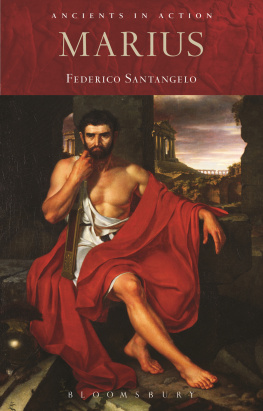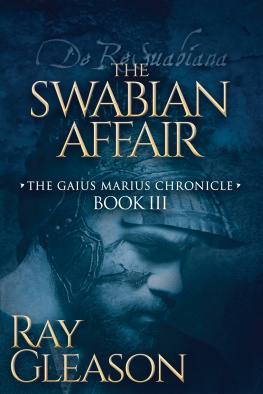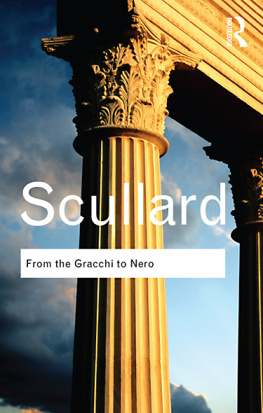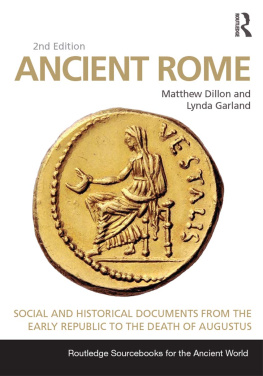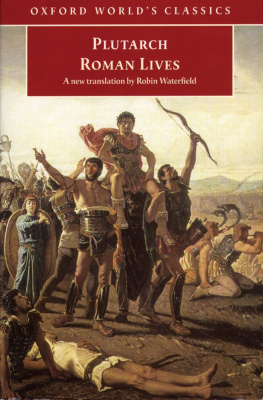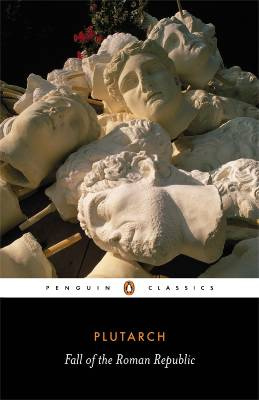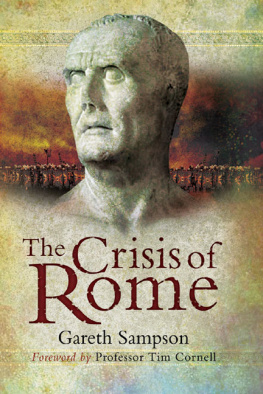Marius
ANCIENTS IN ACTION
Boudicca
Marguerite Johnson
Catiline
Barbara Levick
Catullus
Amanda Hurley
Cleopatra
Susan Walker and Sally-Ann Ashton
Hadrian
James Morwood
Hannibal
Robert Garland
Horace
Philip D. Hills
Lucretius
John Godwin
Martial
Peter Howell
Ovid: Love Songs
Genevieve Lively
Ovid: Myth and Metamorphosis
Sarah Annes Brown
Pindar
Anne Pippin Burnett
Sappho
Marguerite Johnson
Spartacus
Theresa Urbainszyk
Tacitus
Rhiannon Ash
per Giovanni Geraci
Marius
Federico Santangelo
Bloomsbury Academic
An imprint of Bloomsbury Publishing Plc

Contents
I am very grateful to Alan Beale and Roger Rees for inviting me to write this book, and am especially indebted to Roger for offering me some crucial advice on how to write it. I am also very grateful to the anonymous readers who commented on a proposal and an early draft. One of them also generously shared with me the stemma of the Marii that I am including in the text (. At Bloomsbury Charlotte Loveridge, Anna MacDiarmid and Alice Reid expertly guided me throughout the various stages of the project. Kim Storry at Fakenham Prepress Solutions oversaw the production of the volume.
This book stems from teaching, and sets out to be used primarily (though by no means exclusively) in the classroom. My foremost debt is therefore to the several cohorts of Newcastle students with whom I have been discussing Marian matters over the years, and whose reactions to some of the arguments presented here have deeply informed my thinking on the period and my choices on how to frame this account.
The dedication is a small token of gratitude and affection to a scholar and teacher from whom I have learned a great deal more than I could possibly say.
(all dates bc )
Arpinum is granted Roman citizenship.
158/157 Marius is born at Arpinum.
Destruction of Carthage by Scipio Aemilianus.
Conquest of Numantia; tribunate of Tiberius Gracchus.
Marius holds the tribunate of the plebs.
Death of Micipsa, king of Numidia.
116 (?) Marius fails to be elected to the aedileship.
Marius is elected to the praetorship.
Governorship in Further Spain.
Defeat of Spurius Postumius Albinus in North Africa.
Consulship of Metellus Numidicus. Marius joins him in Numidia as legatus . Birth of Marius the Younger.
Military operations in Numidia. Marius returns to Rome to stand for the consulship.
First consulship; recruitment of capite censi into the army; return to Numidia. Sulla joins the campaign as quaestor.
Conquest of Moluccha and Cirta. Contacts between Marius, Sulla and Bocchus.
Jugurtha is betrayed by Bocchus and captured by Sulla. 6 October: Roman defeat at Arausio in Southern Gaul against the Cimbri. Marius is elected to the consulship for 104.
Marius celebrates his triumph over Jugurtha. Campaign to Southern Gaul.
Third consulship of Marius. Agrarian bill of the tribune Saturninus.
Fourth consulship. Major Roman victory against the Teutones at Aquae Sextiae.
Fifth consulship. Decisive victory against the Cimbri at Vercellae (July).
Tribunate of Glaucia.
Sixth consulship. Tribunate of Saturninus. Assassination of Nonius. New agrarian bill. Tensions with the Senate. 10 December: senatus consultum ultimum. Death of Saturninus and Glaucia.
Marius trip to Asia Minor. Election to the augurate.
Marius returns to Rome.
Lex Licinia Mucia ; case of T. Matrinius.
Tribunate of M. Livius Drusus; citizenship bill; outbreak of the Social War.
Marius is active on the northern front of the war (central Italy) under the consul P. Rutilius Lupus.
Marius withdraws from the operations.
Consulship of Sulla; tribunate of Sulpicius. Controversy over the Mithridatic command. Riots in Rome; Marius is assigned the command. Sullas troops march on the city. Marius is declared a public enemy and is compelled to flee Rome.
Marius escapes to North Africa. In Rome, clash between Cn. Octavius and L. Cornelius Cinna. Marius returns to Italy and joins forces with Cinna. March on Rome and ensuring massacre. December: Marius and Cinna are elected to the consulship.
Mid-January: Marius dies, probably of natural causes. SpringSummer: Sullas victories against Mithridates in Greece.
Supremacy of Cinna in Rome. Sulla successfully concludes the campaign against Mithridates.
Death of Cinna. Sulla settles the affairs of the province of Asia.
Sulla returns to Italy; beginning of the Civil War.
Marius the Younger holds the consulship. 1 November: battle of the Colline Gate; Sulla takes up the dictatorship and launches the proscriptions.
Sulla withdraws to private life.
Death of Sulla.
Caesar gives a eulogy for Marius wife, Iulia.
Marius monuments are restored by Caesar.
5857 Ciceros exile.
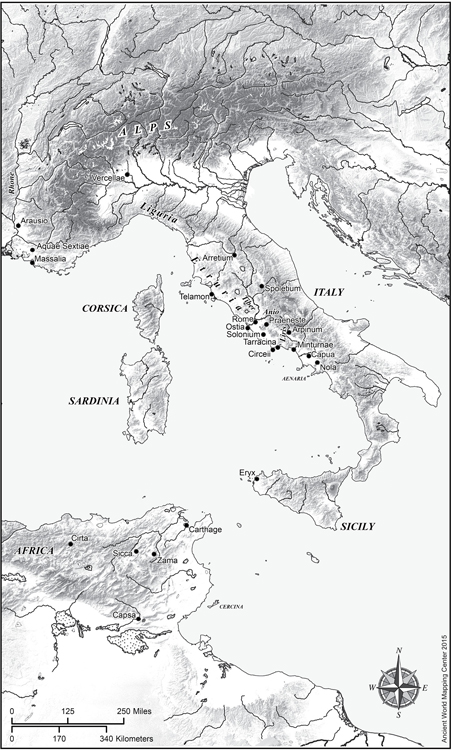
The most authoritative and influential works on the history of the late Roman Republic over the last half century or so have tended to focus on wide-ranging processes, on long-term developments in some key areas, and on the role of some social groups. To be sure, plenty of substantial studies have been produced on the part that a number of major figures from the Gracchi to Sulla, Cicero, and Caesar had in political developments, but mostly with a view to offering a more precise understanding of how the initiatives and policies of some individuals were affected by, and impacted on, wider historical trends. Great Man history is not in favour and rightly so.
This book is certainly not an attempt to redress the balance in the opposite direction. It is, first and foremost, an attempt to sketch an account of the life and career of Gaius Marius. It tries to do so by setting Marius in context and by asking the wider question of what aspects of short-term discontinuity and long-term change he introduced. There are many widely known aspects of Marius biography that set him apart as a remarkable figure in Roman history, and as one that announces new times, as the Republic is heading towards an age of disruption. He was an exceptionally successful individual, who obtained the consulship on seven occasions, in spite of hailing from a family that had never produced a senator before him; a commander who appears to have introduced new methods of recruitment in the Roman army and established a remarkable bond with his men; a military leader who saved Italy from a major threat from the north; a political leader who joined forces with ruthless allies to pass a range of reforms that were intended more to provide his soldiers with land than to bring relief to the poor; an elder statesman who was first compelled to flee Rome when his main opponent (and former aide) marched on the city at the helm of an army, and then launched a spectacular comeback, followed by a round of unprecedented massacres, only to die (probably of natural causes) two weeks into his seventh consulship.
At several points in his life Marius achieved a level of power and influence that was virtually unprecedented; he was revered by the people of Rome and supported by the crowd of his veterans. The great German historian Theodor Mommsen (18171903) argued that Marius intended to establish a system of personal rule, and indeed came very close to achieving it. At the same time, he claimed, like many other scholars, that Marius was politically inept, and that he failed to gather sufficient consensus and obtain lasting political results, in spite of the magnitude of his military achievements and the prestige that they had conferred upon him. Recent discussions of the period have gone some way to showing that this is a reductive view. It is beyond doubt that Marius faced a number of considerable political setbacks, but his political longevity and the resilience with which he remained a force to be reckoned with for decades, throughout a highly volatile political context, should induce one to adopt a more generous assessment of his talents in the Forum and on the Senate floor, as well as on the battlefield.

